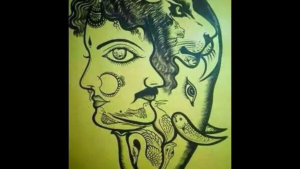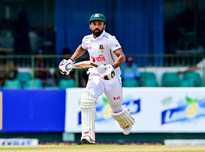The Indian men's hockey team's aspirations for the FIH Pro League title took a hit during the European leg of the competition. After a promising start with 15 points from eight matches, placing them third in the standings, the team managed to add only three points in the subsequent eight games. This performance left Craig Fulton's side near the bottom of the table, narrowly avoiding relegation but suffering a disheartening seven-match losing streak. Their sole victory came against a weakened Belgium team.
The string of losses was unexpected for a team that secured an Olympic bronze medal. However, experts suggest that it's premature to panic. Despite the disappointing results, India was competitive in most matches, rarely being completely outplayed. The difference in quality between India and their opponents was often minimal.

Six of the seven losses were decided by a single goal. On multiple occasions against the Netherlands and Australia, India conceded late goals, costing them the game. Similar lapses occurred in both matches against Argentina. While some matches, like the second game against Australia and the first against Belgium, saw India outplayed, other games could have easily swung in their favor.
These results may serve as valuable lessons learned with minimal consequences, as the Pro League doesn't hold significant stakes. While a World Cup spot was at stake, India's primary qualification path remains the upcoming Asia Cup in late August. Fulton can use this experience to identify weaknesses and implement necessary improvements. The team's current struggles echo a past pattern: a poor away leg in the Pro League preceding their success at the Paris Olympics, where they won a bronze medal.
Fulton's tactical approach relies on a robust defense, which faltered during the European matches. India conceded 26 goals in eight games, a significant increase from the 12 conceded in their earlier home games.
The previously reliable defensive unit, including Amit Rohidas, Sumit, Jugraj Singh, Jarmanpreet Singh, and Sanjay, experienced a dip in form. Although not drastically underperforming, costly errors such as failed clearances, mistimed tackles, poor positioning, and sloppy defensive plays led to goals.
Goalkeeper Krishan Pathak's form was also a concern. Known for his proficiency in defending set-pieces, Pathak struggled, particularly with high balls.
The absence of veteran goalkeeper PR Sreejesh was keenly felt. Sreejesh's exceptional shot-stopping ability and composure in crucial moments were missed, as neither Pathak nor Suraj Karkera could replicate his impact.
Dropping a significant number of players after these eight matches would be unwise. With World Cup qualification on the horizon, maintaining faith in players familiar with the team's system is crucial. Overhauling the team is unnecessary, as the current players possess the international quality and experience needed.
However, pre-existing selection issues persisted. Fulton's continued reliance on experienced but inconsistent forwards like Mandeep Singh, Lalit Upadhyay (who has retired), and Dilpreet Singh hampered the team's attacking prowess. In contrast, Shilanand Lakra, despite his relative inexperience, demonstrated promising skills, making a case for his continued inclusion in the national team.
Ahead of the Asia Cup, Fulton must evaluate whether talented young attackers such as Araijeet Singh Hundal, Arshdeep Singh, and Mohammed Raheel, all of whom have international experience, deserve a place in the senior team.
Abhishek was undoubtedly the standout performer for India during the eight matches. He has consistently been the team's best forward, renowned for his exceptional ball-striking ability. His four goals helped compensate for the absence of Harmanpreet Singh's dragflicks, as the captain missed several games due to injury.
Manpreet Singh also deserves recognition. The veteran player, with over 400 international matches, continues to exhibit unwavering commitment, tirelessly running the length of the pitch in both defense and attack. While his speed may have diminished, his relentless work ethic remains. Unlike some other senior players, he appears likely to be included in the national team for next year's World Cup.
The focus now shifts to the Asia Cup, scheduled from August 27 to September 7 in Rajgir, Bihar. As the strongest team in the continent, India is expected to win the tournament and secure their qualification for the World Cup.
Newer articles
Older articles
 Chess Star Praggnanandhaa Weighs In on Carlsen's Frustration After Loss to Gukesh
Chess Star Praggnanandhaa Weighs In on Carlsen's Frustration After Loss to Gukesh
 Samsung Galaxy A35 5G and A55 5G: Official Pricing and Availability Announced
Samsung Galaxy A35 5G and A55 5G: Official Pricing and Availability Announced
 India's Fielding Woes Blamed for First Test Defeat Against England: Former Selector Voices Concerns
India's Fielding Woes Blamed for First Test Defeat Against England: Former Selector Voices Concerns
 Headline: Viral Optical Illusion: Can You Find All the Hidden Animals? Only 1% Succeed
Headline: Viral Optical Illusion: Can You Find All the Hidden Animals? Only 1% Succeed
 Shadman Stands By Bangladesh Batters After Day 1 Struggles Against Sri Lanka
Shadman Stands By Bangladesh Batters After Day 1 Struggles Against Sri Lanka
 Norris Claims Thrilling Austrian GP Victory After Intense Duel with McLaren Teammate Piastri
Norris Claims Thrilling Austrian GP Victory After Intense Duel with McLaren Teammate Piastri
 Jake Paul's Title Dreams: Analyzing Championship Prospects and Potential Opponents
Jake Paul's Title Dreams: Analyzing Championship Prospects and Potential Opponents
 Gavaskar Urges India to Unleash Kuldeep Yadav in Second Test Amid Bumrah Fitness Concerns
Gavaskar Urges India to Unleash Kuldeep Yadav in Second Test Amid Bumrah Fitness Concerns
 iQoo Z9 Turbo Leaks: Snapdragon 8s Gen 3, 1.5K Display, and Massive Battery Detailed
iQoo Z9 Turbo Leaks: Snapdragon 8s Gen 3, 1.5K Display, and Massive Battery Detailed
 Mirabai Chanu Reveals Relentless Dedication: Training and Weight Always Top of Mind, Even During Family Time
Mirabai Chanu Reveals Relentless Dedication: Training and Weight Always Top of Mind, Even During Family Time